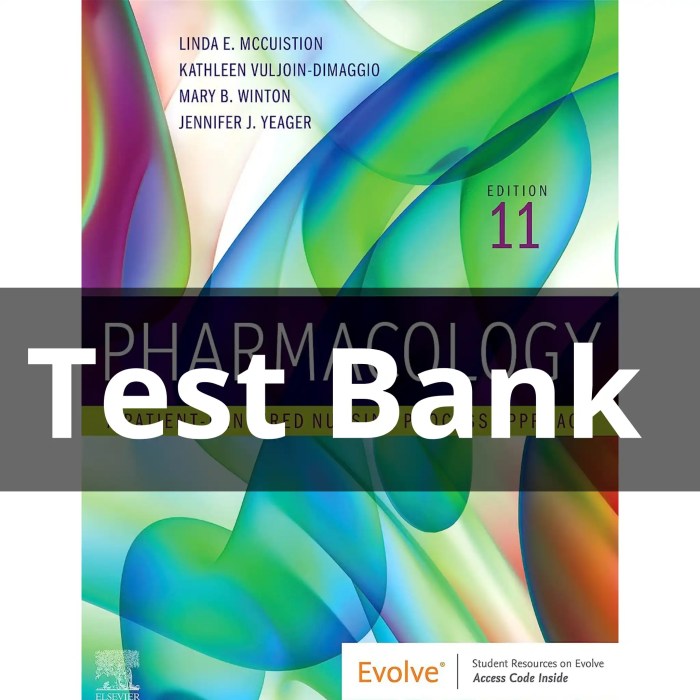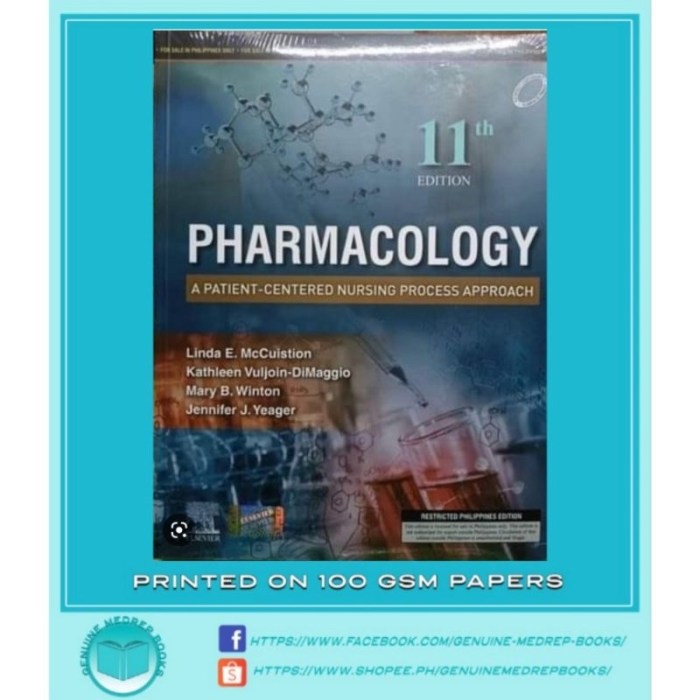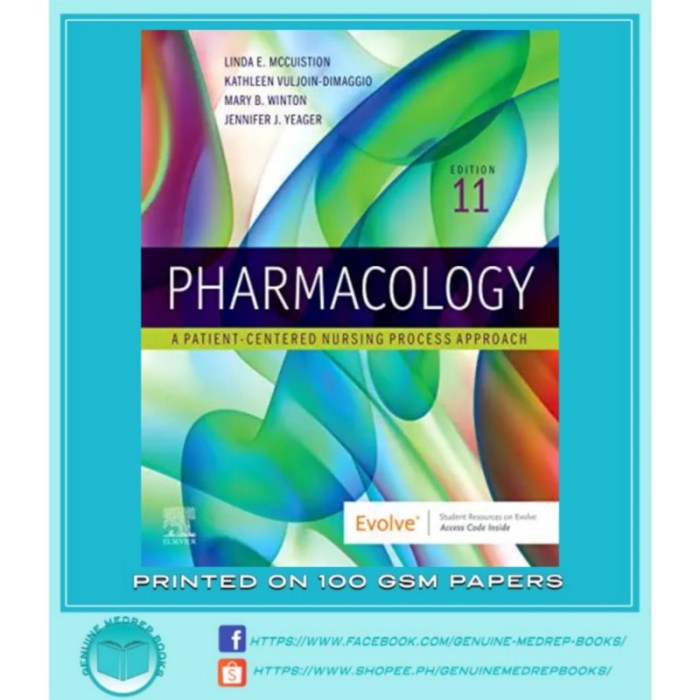Pharmacology a patient-centered nursing process approach 11th edition – Embark on a comprehensive exploration of pharmacology through the lens of patient-centered care in “Pharmacology: A Patient-Centered Nursing Process Approach, 11th Edition.” This authoritative text provides a comprehensive overview of pharmacological principles, drug administration, and the management of common conditions, empowering nurses to deliver safe and effective drug therapy.
With a focus on patient-centered care, this edition emphasizes the importance of understanding individual patient needs and tailoring drug therapy accordingly. It delves into the mechanisms of drug action, drug interactions, and the considerations for special populations, ensuring nurses are well-equipped to optimize drug therapy for all patients.
1. Introduction: Pharmacology A Patient-centered Nursing Process Approach 11th Edition
Pharmacology, the study of drugs and their effects on living organisms, plays a pivotal role in nursing practice. It encompasses the knowledge of drug actions, interactions, and therapeutic uses, enabling nurses to administer and monitor drug therapy effectively.
A patient-centered approach in pharmacology prioritizes the individual needs and preferences of patients. It involves considering their health status, lifestyle, and values when making medication decisions. This approach promotes optimal drug therapy outcomes, enhances patient satisfaction, and fosters collaborative decision-making.
2. Principles of Pharmacology

Understanding the basic principles of pharmacology is essential for nurses. Pharmacokinetics describes the absorption, distribution, metabolism, and excretion of drugs within the body. Pharmacodynamics explains how drugs interact with biological targets, leading to their therapeutic effects.
Drug interactions can occur when multiple medications are taken concurrently, potentially altering their efficacy or safety. Nurses must be aware of potential interactions and take appropriate measures to minimize their impact.
3. Drug Administration
Nurses are responsible for administering medications safely and effectively. Various routes of administration exist, each with its advantages and implications. Nurses must select the appropriate route based on the patient’s condition and the drug’s properties.
Medication safety is paramount, and nurses play a crucial role in preventing errors. Medication reconciliation ensures accurate and complete medication histories, reducing the risk of medication discrepancies.
4. Drug Therapy for Common Conditions

Pharmacological management of common conditions is a core aspect of nursing practice. Nurses must be familiar with the drugs used to treat cardiovascular disease, respiratory disorders, infections, and other prevalent conditions.
Drug selection, dosage, and potential side effects must be carefully considered to optimize therapeutic outcomes and minimize adverse reactions.
5. Special Populations
Drug therapy in special populations, such as children, the elderly, and patients with renal or hepatic impairment, requires specific considerations. Nurses must understand the unique physiological and metabolic characteristics of these populations and adjust drug therapy accordingly.
Optimizing drug therapy in special populations involves tailoring dosages, monitoring for adverse effects, and considering alternative drug options when necessary.
6. Patient Education

Patient education is vital in pharmacology. Nurses play a crucial role in educating patients about their medications, including their purpose, dosage, side effects, and potential interactions.
Effective patient education promotes medication adherence, reduces medication errors, and empowers patients to manage their own health. Nurses must use clear and concise language, tailored to the patient’s understanding.
7. Nursing Implications

Nurses are central to administering and monitoring drug therapy. They assess patients’ medication needs, administer medications, monitor for therapeutic effects and adverse reactions, and educate patients about their medications.
Ethical and legal considerations guide nurses’ actions in pharmacology. They must ensure patient safety, respect patient autonomy, and adhere to professional standards.
FAQ Summary
What is the significance of a patient-centered approach in pharmacology?
A patient-centered approach recognizes the unique needs and preferences of each patient, ensuring that drug therapy is tailored to their individual circumstances and goals.
How does this edition address the management of drug therapy in special populations?
The text provides detailed guidance on considerations for drug therapy in children, the elderly, and patients with renal or hepatic impairment, ensuring optimal outcomes for all patients.
